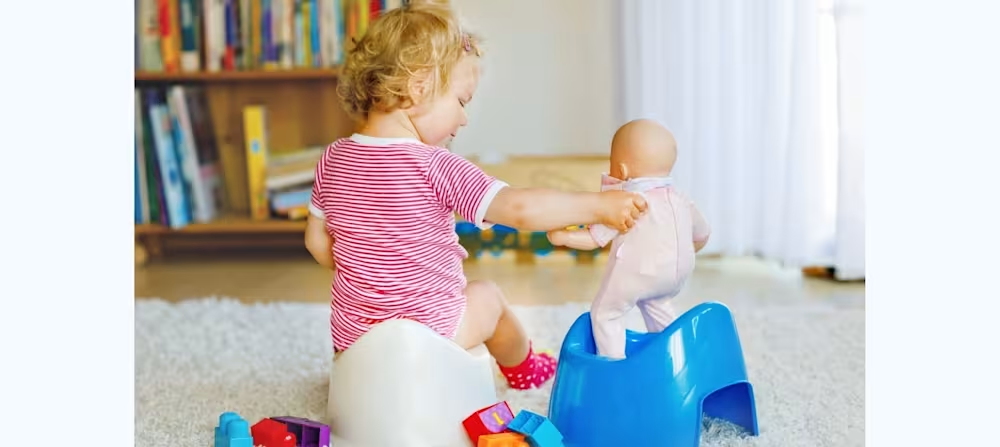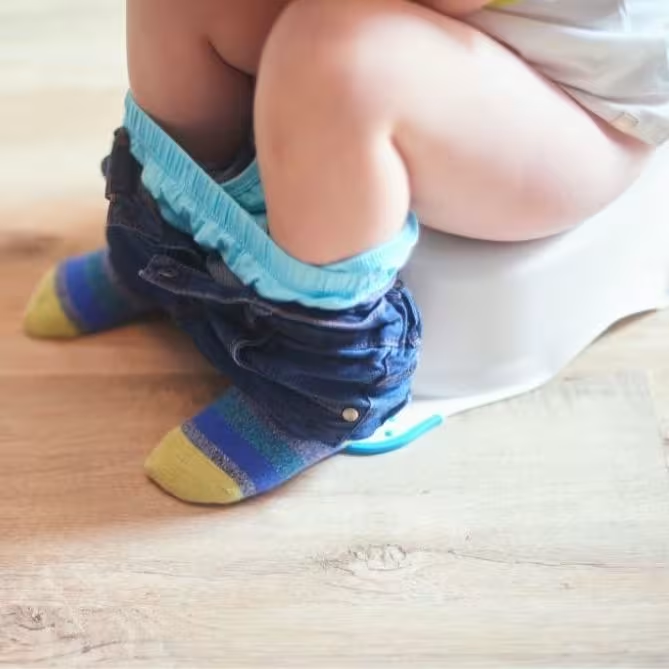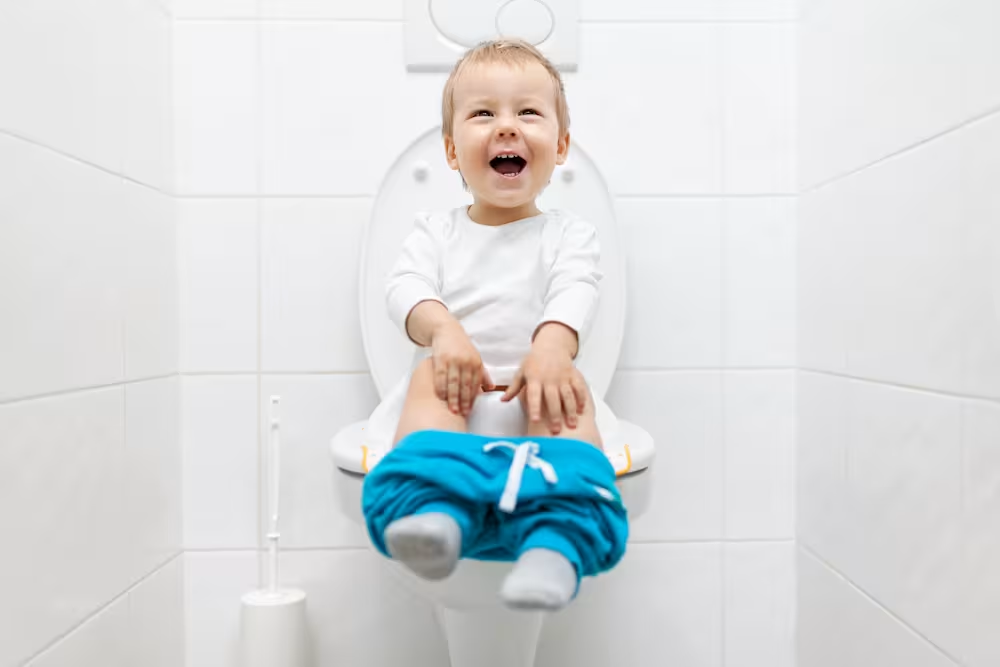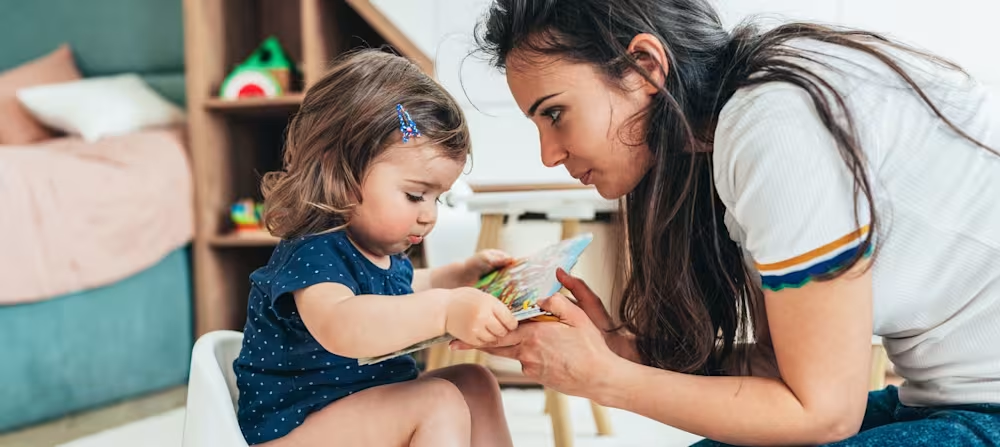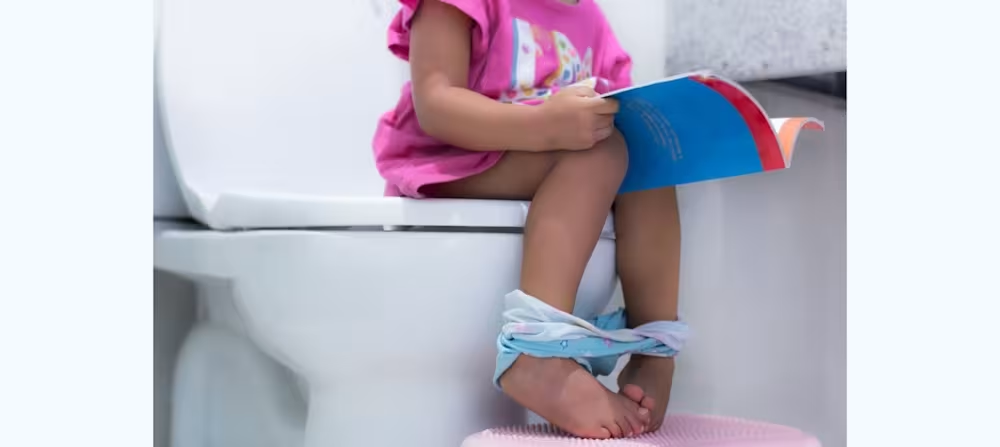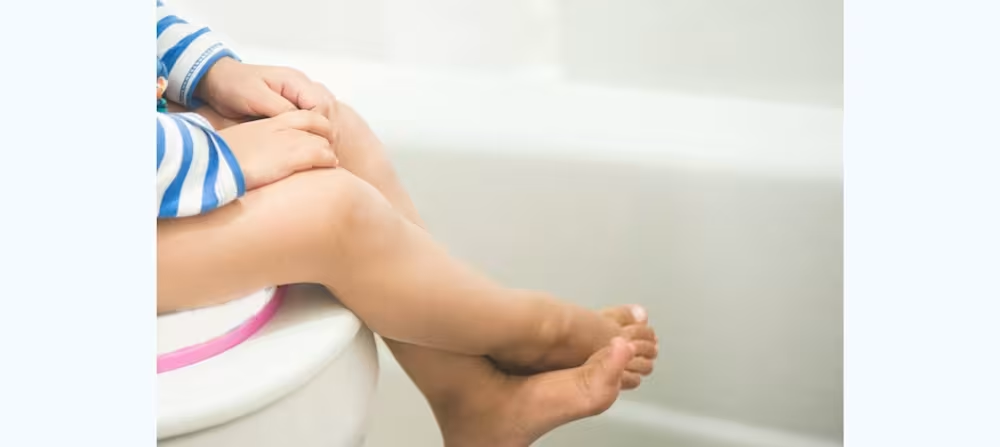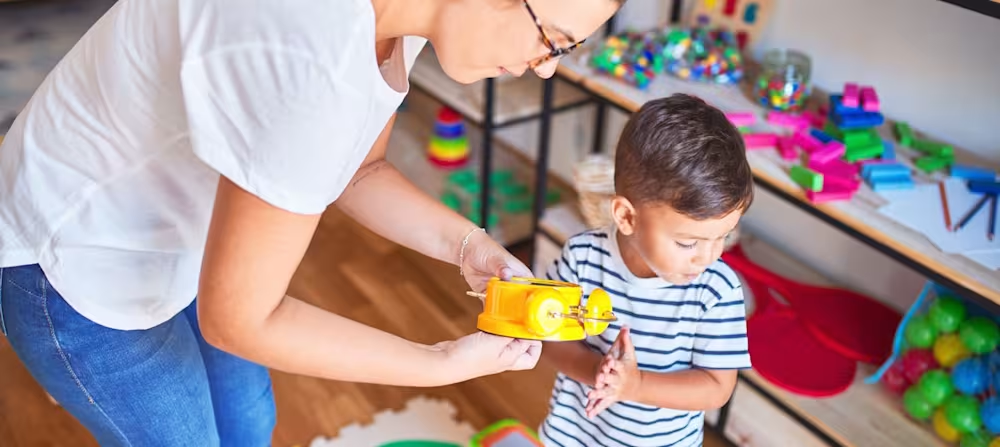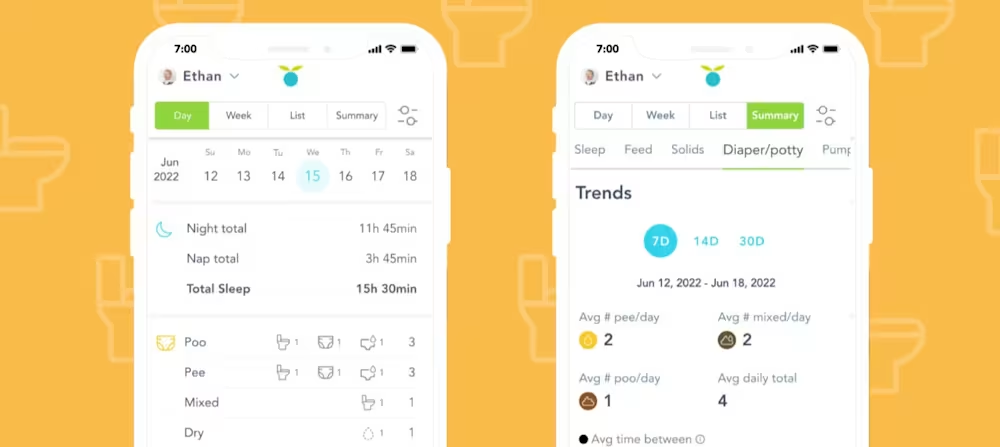How does potty training affect toddler sleep and cause regression?
Updated Dec 29, 2025

By now you may have noticed that most big developmental milestones in your child’s life also impact sleep: sitting up, walking, talking, and — you guessed it! — potty training too. Who wants to sleep when there are exciting new skills to focus on? While frustrating, rest assured that if potty training disrupts your toddler’s sleep routines, it’s only temporary.
However, it can be tricky to find the right balance between learning the lifelong skill of using the toilet and ensuring your child gets the rest they need. Sleep is precious and overtired toddlers will typically have a harder time during the too. To help you navigate this sometimes tricky time, we’ll cover the connection between toilet training and sleep, offer parenting tips for balancing sleep and potty training, and help you create sleep and bathroom schedules that work for your family.
Can potty training cause sleep regression?
It can be helpful to frame potty training as a major developmental milestone [] — like walking or talking. As with any significant milestone mastery or big changes, potty training can lead to in toddlers. This usually means there’s a sudden, temporary shift in sleep patterns. If this happens when your child is potty training, rest assured that this is temporary. Following an age-appropriate, consistent sleep schedule and focusing on healthy sleep habits can help your child get back on track sooner.
However, if you see that potty training is majorly affecting sleep for a prolonged period, this may be a clue that there’s something else at play. For example, undue stress and anxiety from potty training or another external factor could be impacting sleep quality for your toddler.
In general, if your child has not been sleeping well, this may derail the potty training process. You may want to consider working on sleep skills before embarking on the transition to potty training, as a well-rested child is less likely to experience a sleep regression after potty training.
If you’re wondering, “can potty training cause sleep regression?” or “how long does potty training sleep regression last?”, remember that every child is different. While some may adjust quickly, others may take a bit longer to return to their usual sleep patterns. In any case, maintaining a supportive environment and sticking to a consistent routine can make the process smoother.
Overtired kids may struggle to integrate learning
If your kiddo is well-rested and has good sleep habits and skills, it’s more likely that potty training will go well. Their internal clock will be regulated and this will make it easier to have a predictable schedule and routine for the bathroom too.
On the other hand, when a child is overtired it will likely be much harder to integrate learning how to use the toilet. Overtired kids have a and staying asleep when they haven’t gotten adequate rest. As a result, not sleeping well can temporarily weaken [] the part of the brain that manages planning and problem-solving, which are important when potty training.
Lack of sufficient sleep can also impact a child’s mood and energy levels. You may be met with and resistance to potty training in general, especially if your little one hasn’t slept well.
How potty training can impact sleep
Delaying bedtime: Sleep resistance
Toddlers are very good at finding reasons to prolong bedtime and potty training provides them with plenty of stall tactics! They can usually quickly figure out that if they say they have to poop right before bed, this leads to sitting on the toilet for a while instead of heading right to bed. It can be helpful to build a bathroom trip into your child’s bedtime routine to help cut down on this behavior.
Waking up and wanting to use the toilet
Toddler sleep can also be impacted by potty training if your child wakes up early from naps or has nighttime awakenings and uses needing to go to the bathroom as an excuse to get out of bed. The nighttime bathroom visits tactic may be more common in children who already have trouble with sleep before they start potty training.
Bedwetting
Typically daytime potty training comes before removing diapers for naps and overnight sleep. If you choose to potty train during sleep times (or forget to put a Pull-up or diaper on your child before bed, which happens), bedwetting can often lead to disrupted sleep. It also leads to extra laundry and less sleep for you!
Tips for establishing a daily schedule to accommodate sleep and going to the bathroom
Tip #1: Pay attention to your child’s biological rhythms
Many children have a predictable time of day when they typically poop. Try to have your child sit on the toilet around this time consistently every day, which can signal to their body that it’s time to poop. This routine can help minimize sleep disruptions and bedtime stall tactics if your toddler typically needs to poop right before naps or bedtime.
Tip #2: Build toilet time into bedtime routines
It can be helpful to build a trip to the bathroom into your child’s bedtime rituals. Routines help toddlers feel secure and stable []. This scheduled potty trip is also important when they eventually aren’t wearing a diaper or pull-up and ideally stay dry during sleep times.
Tip #3: Navigate bedtime stall tactics
Toddlers figure out pretty quickly that if they say they have to use the bathroom right before they’re due to sleep, they get to stay up a bit longer. And it works! Even if you’re pretty confident they don’t really need to poop or pee, you don’t want to risk an accident. If this happens often at your house, try using a 10-minute timer. Give them this 10-minute window to use the toilet and if they do, great. If not, then continue with the rest of their nighttime routine. It’s often easier to build 10 more minutes into bedtime than have it unexpectedly drag out.
Managing potty training anxiety
Potty training may already cause some stress and anxiety in toddlers. After all, it’s a new skill that involves strange noises and new experiences like sitting on a toilet and pooping without the comfort of their diaper. There can also be stress around accidents and being constantly prompted to use the toilet. Any stress and anxiety around this transition will likely be intensified if a child is also having sleep issues, which can then derail potty training strategies.
If this happens, it can be helpful to take a nice, long break from potty training where you don’t talk about the toilet at all unless your child brings it up and you follow their lead. This may be a good period to work on sleep skills and habits to make sure your child isn’t overtired when you start potty training again. After this break, the hope is that there’s been enough time away that the stress and anxiety have dwindled and you can work on toilet training again.
Nighttime potty training readiness
You may be excited to completely ditch diapers when your toddler starts potty training. However, children typically work on daytime potty training first. It can often take 6 - 12 months for children to work up to dryness during sleep times. And sometimes the ability to have the bladder wake up the brain overnight doesn’t develop until kids are older. Most children can control their bladder well overnight by age 5 []. Studies have shown that about 15% of 5 and 7 year olds [] wet the bed. According to the American Academy of Pediatrics [], bedwetting doesn’t require medical intervention until the age of 8.
A good way to gauge whether or not your toddler is ready for is if they have bone-dry diapers every single morning for at least two weeks. Then you may consider removing diapers or pull-ups overnight. The same goes for naps. Naps can be a good place to start sleep time potty training, as children may be ready to wear underwear for naps sooner than overnight because it requires staying dry for a much shorter period.
Tips for potty training consistency and patience
Tip #1: Be consistent with potty training and sleep routines
Accidents are bound to happen, especially in the first few weeks of potty training. While frustrating, it’s common for this process to be a bit of a roller coaster. Unless you think that using the toilet is adding too much stress and anxiety to you and your child, try to be consistent. For example, instead of putting your little one back in diapers for a long car trip, consider making a few extra stops for bathroom breaks instead. Taking steps back in the process can send mixed messages to children and lead to .
It’s also helpful to be consistent with toilet and sleep routines. Creating good habits around using the bathroom before naps and overnight sleep will set your little one up for success long-term too. If you’d like personalized sleep guidance for your child, especially as they transition to potty training, consider submitting for a sleep plan through . Our step-by-step plans are tailored to your child’s needs as well as your family’s goals.
Tip #2: Try to be patient and understanding
Toddlers seem to pick up on emotions from their caregivers — if you’re anxious and unsure about the potty training process or get upset, children may take on those feelings. This can happen around sleep too! Toddler emotional regulation [] is impacted by caregiver emotional regulation, so it can be helpful to be as calm and patient as possible through the potty training process.
Tip #3: Build potty trips into your daily schedule
To minimize battles around using the potty before bedtime, you might consider building trips to the bathroom into your daily routine. This could look like sitting on the toilet upon wakeup, before or after meals, and before you leave the house and after you arrive back home to set expectations around using the toilet throughout the day. Routines can give toddlers confidence and a sense of control [], which are key during the potty training process. To help determine typical potty times, check out our in the .
Tip #4: It’s OK to take a break
If you and/or your toddler are feeling stressed or anxious during the potty training process, consider taking a break. This can be especially helpful if the transition to the toilet is also impacting sleep. Spend 3 - 4 weeks not talking about the potty and come back to it when everyone is feeling better — and well rested too!
Takeaway
Potty training is a major toddler development milestone and this transition may impact sleep temporarily. As with any significant milestone mastery or big changes, potty training can lead to sleep regressions in toddlers.
However, sleep disruption should only last a couple of weeks. Maintaining good sleep hygiene and consistent sleep schedules can help your child get back on track sooner.
Children may use the transition to using the toilet as an excuse to delay bedtime and/or wake up in the middle of the night to go to the bathroom. Creating good toilet and sleep routines can help combat these tactics.
Overtiredness can derail the potty training process in general because a lack of sleep can make it hard for a child to integrate learning a new skill. If this is the case, or you think potty training is adding too much anxiety and stress to your toddler, consider taking a break for 3 - 4 weeks then come back to it.
Try to be patient and understanding when it comes to potty training! It’s normal to have forward and backward progress along the way when it comes to resistance towards using the toilet, accidents, and even sleep resistance or issues.
Share article:
Note: The content on this site is for informational purposes only and should not replace medical advice from your doctor, pediatrician, or medical professional. If you have questions or concerns, you should contact a medical professional.
8 Sources
Share article:


